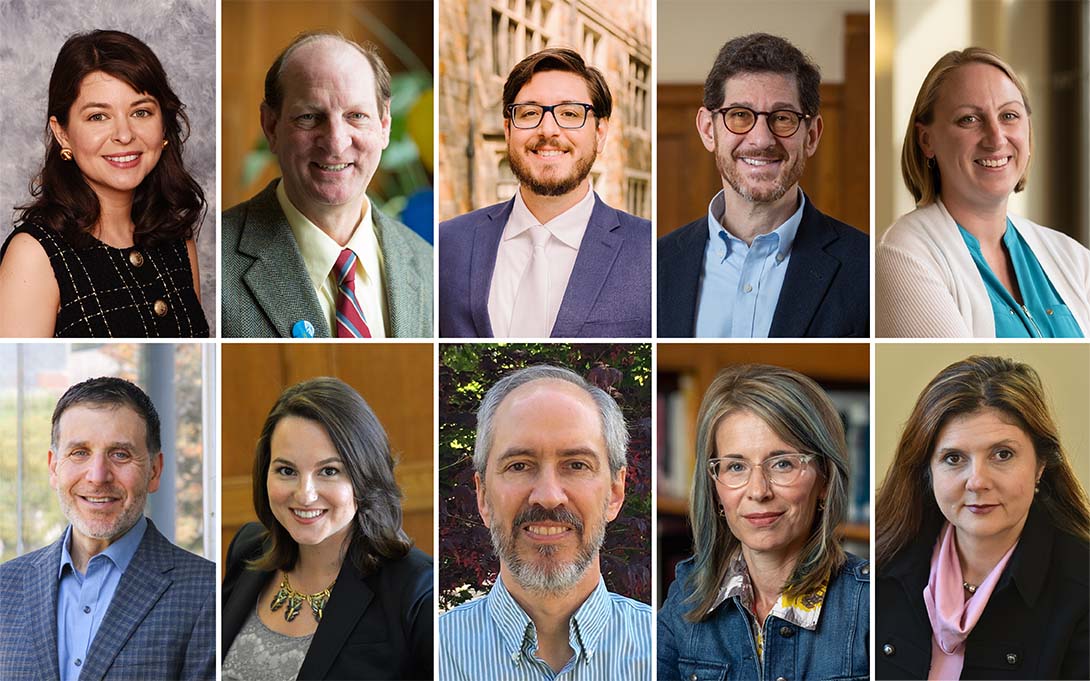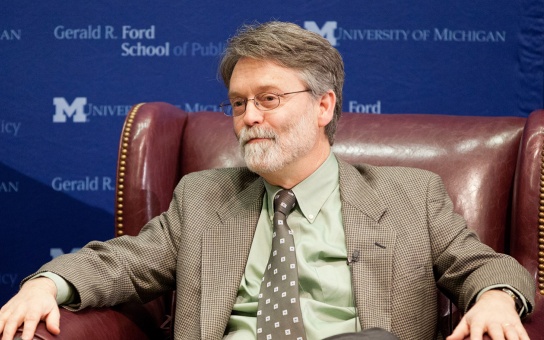
Kamissa Camara chaired the Bipartisan Senior Study Group for the Sahel at the U.S. Institute of Peace. The study group’s comprehensive report critically assesses opportunities for peace, security, and economic development in the Sahel.
Charlotte Cavaillé’s article, “Who Cares? Measuring Preference Intensity,” was accepted in Political Science Research and Methods. She also joined the editorial board of the Journal of Experimental Political Science. Additionally, Cavaillé gave a talk on her research on suffrage extension in France at Vanderbilt University and a talk on moral reasoning and redistribution at the University of Toronto. Cavaillé was also a guest on two podcasts: The Other Hand and Politics in Question.
Sarah Cohodes published “When Do Informational Interventions Work? Experimental Evidence From New York City High School Choice” in Educational Evaluation and Policy Analysis.
Kristina Fullerton Rico published “Grieving in the ‘Golden Cage’: How Unauthorized Immigrants Mourn from Afar” in Social Problems, May 2023.
Rusty Hills’ op-ed, “MSU Scandals Should Lead to Wide-ranging Reforms,” was published in The Detroit News. The piece calls for constitutional reforms to simplify Michigan’s “bedsheet ballot” and allow Michigan voters to elect the Attorney General and Secretary of State instead of the current system, where the nominees are selected at a convention.
Justin Holz published “Estimating the Distaste for Price Gouging with Incentivized Consumer Reports” in the American Economic Journal: Applied Economics.
Brian Jacob and Kevin Stange co-authored a commentary in Bridge Michigan on Governor Whitmer’s recently proposed free college plan. Jacob also started advising a group in Morocco that is evaluating a national education reform initiative. Additionally, Jacob published “Racial Differences in Parent Response to COVID Schooling Policies” in the Proceedings of the National Academy of Sciences and “The Value of Student Debt Relief and the Role of Administrative Barriers: Evidence from the Teacher Loan Forgiveness Program,” forthcoming in the Journal of Labor Economics.
Paula Lantz published “The Sharp Decline in COVID-19 Mortality in 2023: Interpreting Good News in a Population Health Context” in the Milbank Quarterly.
Stephanie Leiser presented her work to develop and pilot open data standards for government financial reporting at the XBRL US GovFin 2023: Empowering Governments, Modernizing Reporting Conference. The conference brought together federal regulators and standard setters, municipal bond market professionals, tech companies, state and local finance officials, organizations representing state and local governments, academics, and other researchers.
Jeffrey Morenoff was appointed to the Government and Public Affairs Committee (GPAC) of the Population Association of America and the Association of Population Centers, which works to educate policymakers about population research outcomes.
Shobita Parthasarathy was appointed to the scientific council for ANSES, the French Agency for Food, Environmental and Occupational Health & Safety. ANSES is a public administrative body reporting to the Ministries of Health, the Environment, Agriculture, Labor, and Consumer Affairs.
Natasha Pilkauskas published a book chapter titled “Social Inequalities and Families” in the Sage Handbook on the Sociology of Education. Additionally, Pilkauskas and Katherine Michelmore published “Who’s Caring for the Kids? The Earned Income Tax Credit and Child Care Arrangements” in the RSF: Journal of the Social Sciences. Pilkauskas and Michelmore also co-wrote “Congress is Close to Expanding the Child Tax Credit Again— with a Smaller Boost for Families this Time” for the Conversation.
The latest edition of the textbook Barry Rabe co-edited, Environmental Policy, was released by SAGE/CQ Press. His paper, “Addressing Short-lived Climate Pollutants after COP28,” was published by the Brookings Institute.
Kaitlin Raimi published “Effects of Communicating the Rise of Climate Migration on Public Perceptions of Climate Change and Migration” in the Journal of Environmental Psychology.
Charles Shipan was selected as the inaugural winner of the Southern Political Science Association’s James C. Garand Outstanding Mentoring Award. The national award recognizes a political scientist for excellence in mentoring undergraduates, graduate students, and/or colleagues in the discipline.
Molly Spencer had two poems recently published from her forthcoming poetry collection, Invitatory, which will be out in late spring or early summer. “Notes on Confluence,” was published in Poetry Northwest, and “The Window / Nine Attempts” was published in On the Seawall.
Bob Simison profiled Betsey Stevenson for the International Monetary Fund’s Finance & Development magazine.
Megan Stewart’s paper, “Explaining Variation in Political Leadership by Marginalized Groups: Black Officeholding and ‘Contraband Camps,’” was accepted by the Journal of Politics.
David Thacher published “Policing a Neurodiverse World: Lessons from the Social Model of Disability” in Policing: A Journal of Policy and Practice. He and colleague, Jessica Gillooly (PhD, ’20), co-wrote “How the Public Became the Caller: The Emergence of Reactive Policing, 1880-1970” which was accepted at Law and Social Inquiry.
Celeste Watkins-Hayes and Dom Adams-Santos published “Women’s Health in Post-Roe v. Wade America: Injuries of Inequality and the Promise of Safety Nets” in the American Journal of Sociology.
Fond farewells

John Ciorciari left the Ford School in March to become dean of the Hamilton Lugar School of Global and International Studies at Indiana University Bloomington. Ciorciari joined the Ford School faculty as an assistant professor in 2009, earned tenure in 2016, and became a full professor in 2022. He led a transformation and tremendous expansion of international education opportunities at Michigan. Due in large part to his dedication and creativity, the Ford School is now recognized as a top-ranked graduate program for international and global policy.
Renowned political scientist Richard Hall will be retiring at the end of the spring semester. Read more about his achievements.
More in State & Hill
Below, find the full, formatted spring 2024 edition of State & Hill. Click here to return to the spring 2024 S&H homepage.